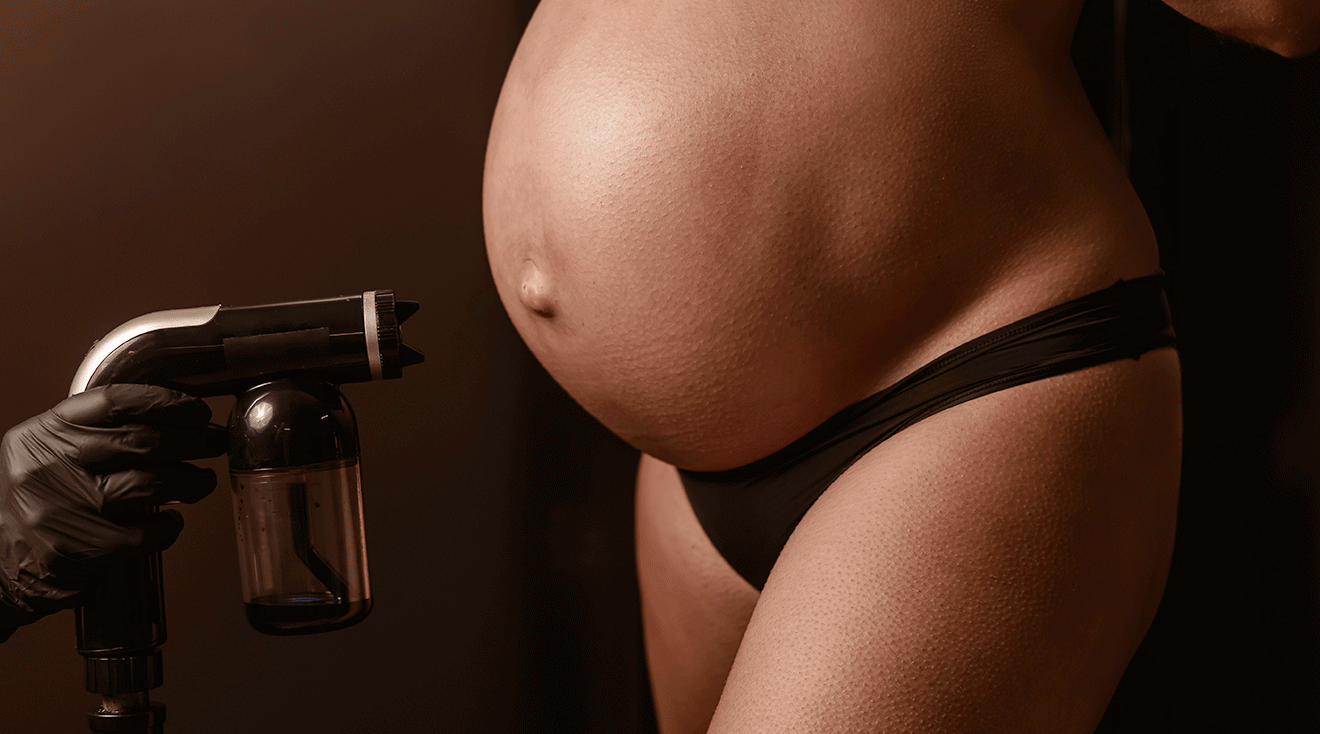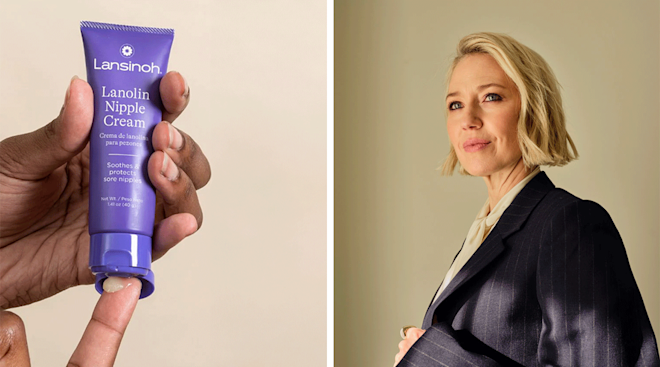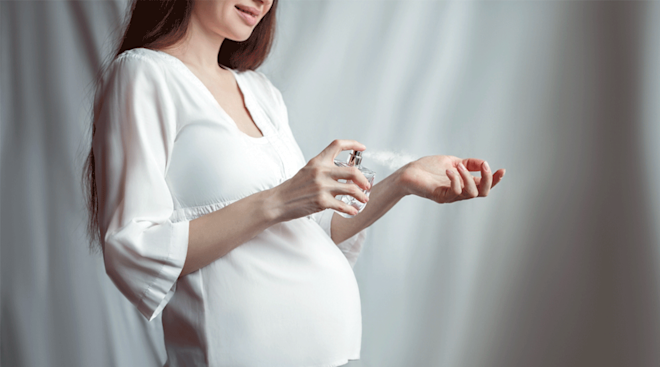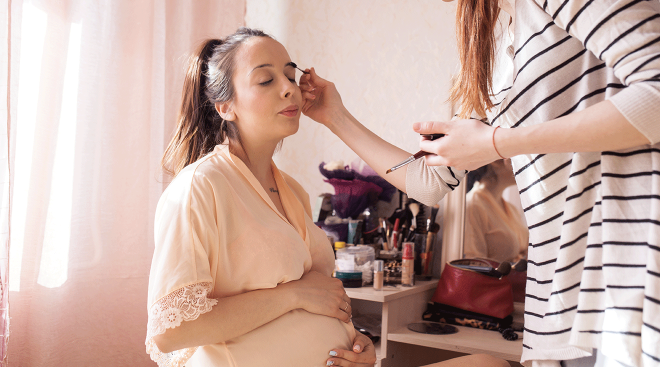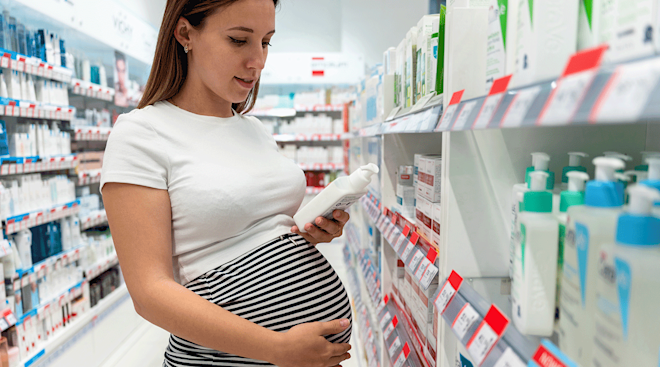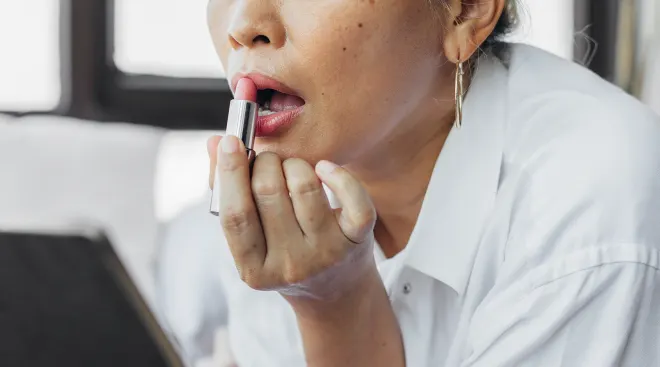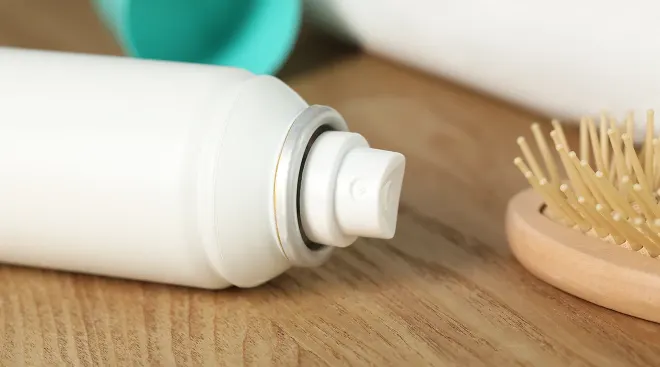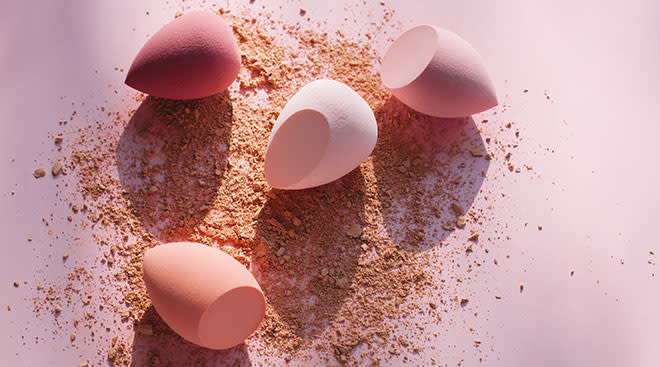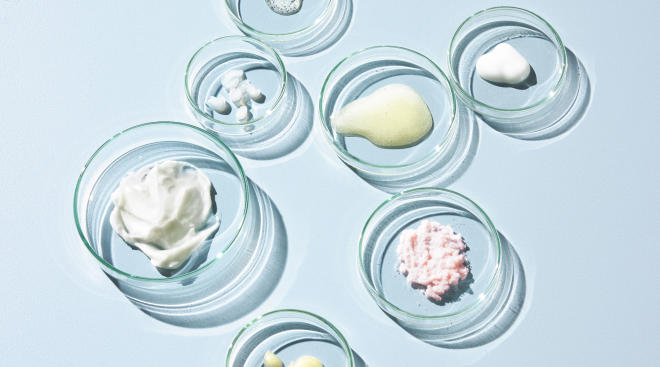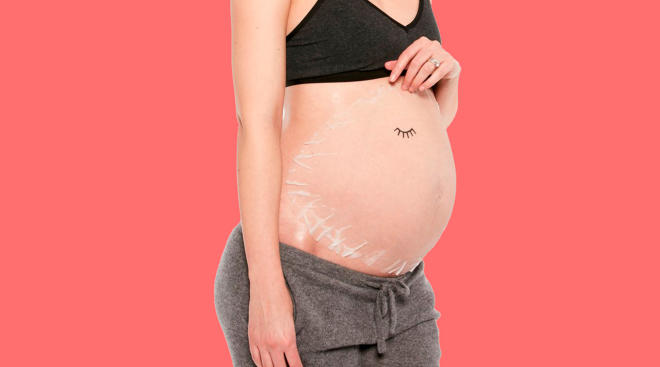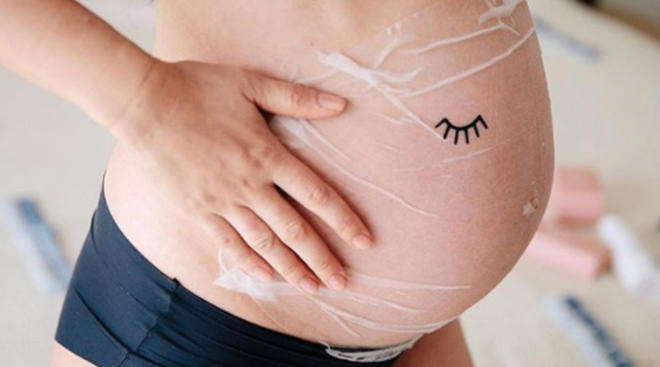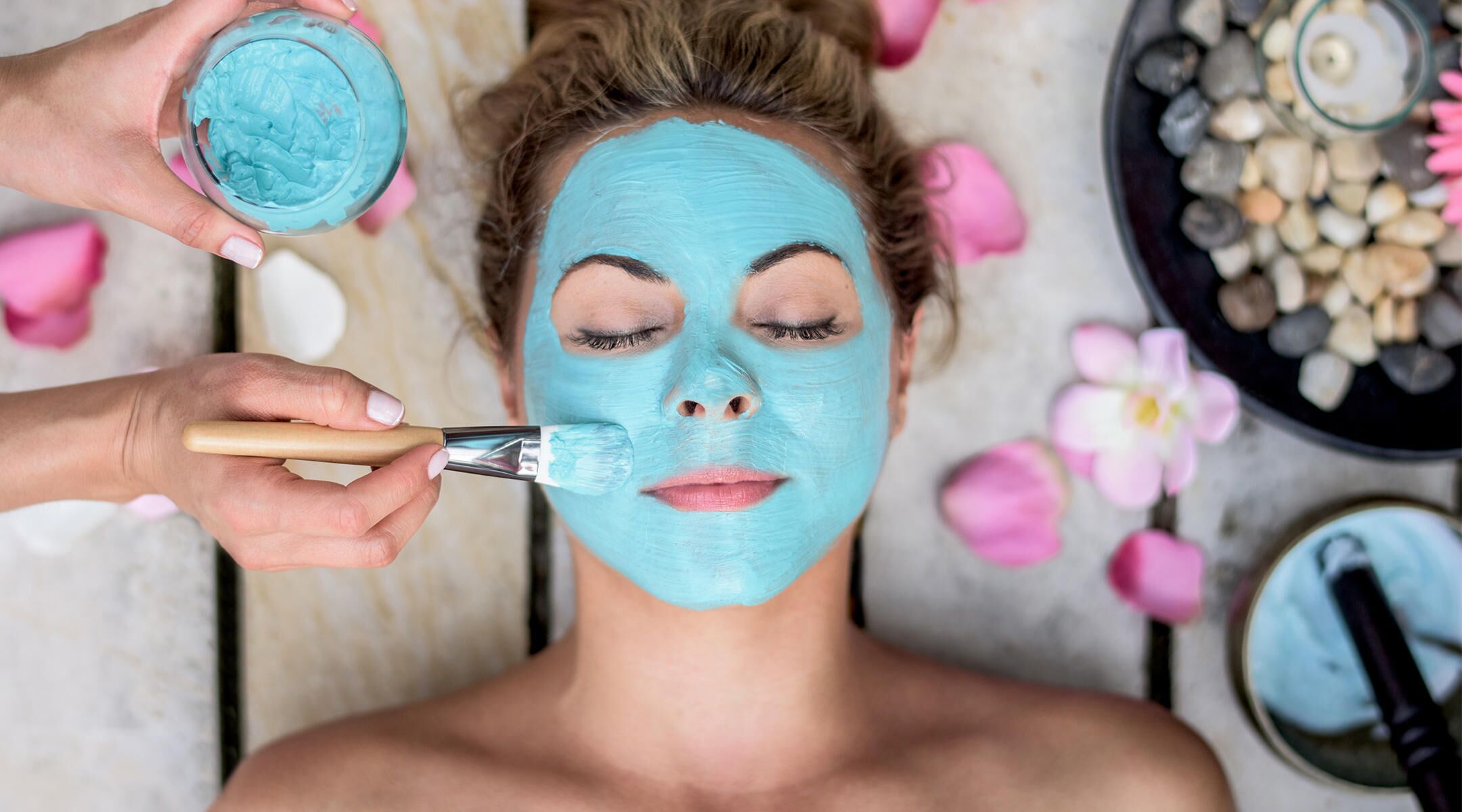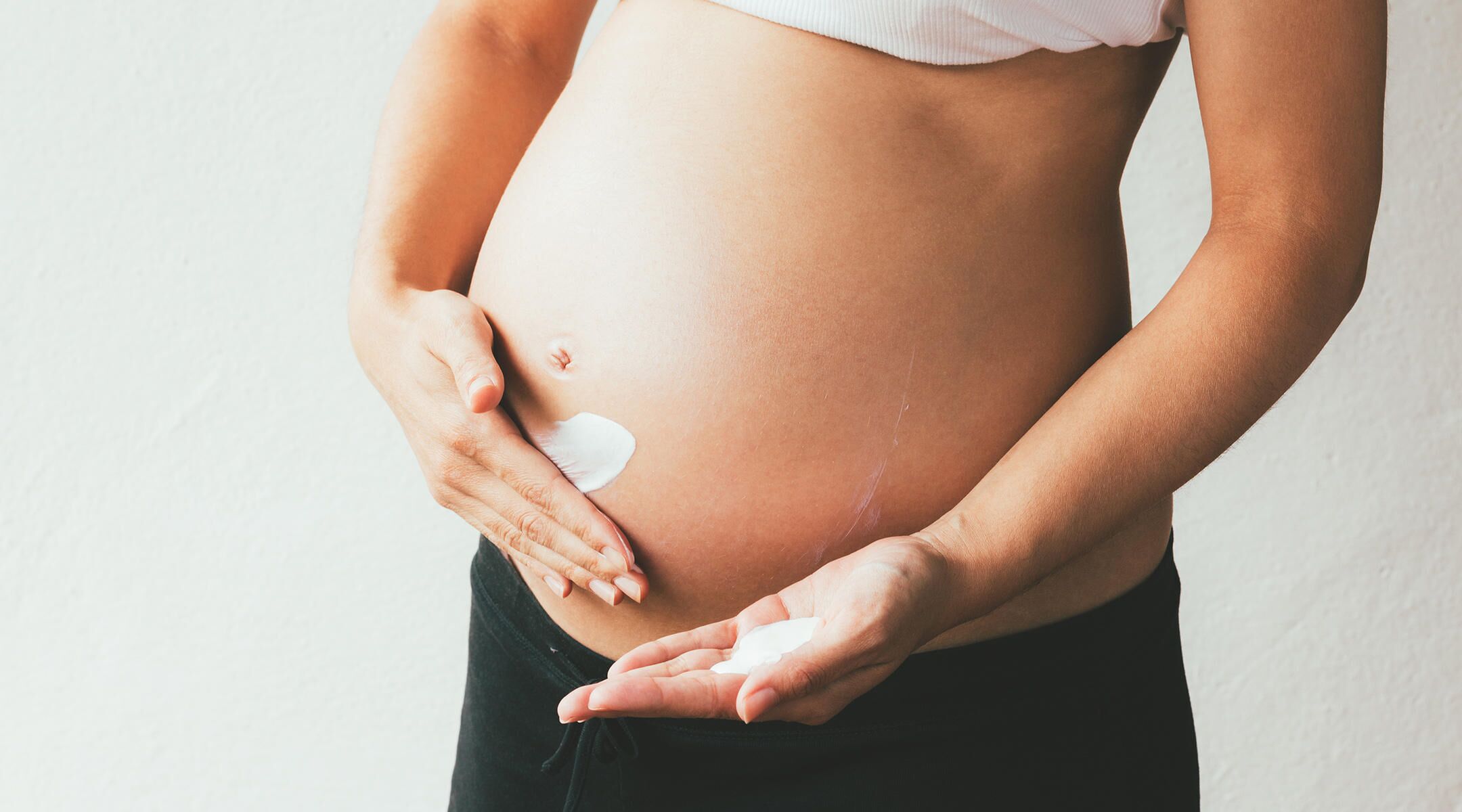Can You Get a Spray Tan While Pregnant?
Sushi is off-limits while you’re expecting and you haven’t had a cocktail in months. But do you also need to give up spray tanning? If you’d like to enhance that pregnancy glow, we have good news: You can absolutely go for the gold—just take a few precautions. So, can you get a spray tan while pregnant? Read the expert advice, ahead.
The short answer is yes, says Stacey Pereira, MD, an ob-gyn and founder of Women’s Integrative Ob-Gyn in Atlanta, who recently got a spray tan before her maternity photoshoot. The active ingredient in most commercial spray tan solutions is dihydroxyacetone (DHA), a carbohydrate derived from sugar cane and sugar beets that’s safe for external use, she adds. The other components in spray tan solutions are adjuvants, or inactive additives that carry the DHA.
Are spray tans safe while pregnant?
Because DHA is considered safe, so is getting a spray tan during pregnancy, explains Pereira. “The concern regarding topical application of any substance in pregnancy is its degree of absorption into the bloodstream [and] its ability to cross the placenta into the fetal bloodstream,” she says. With spray tans, the ingredients are absorbed by the outermost layers of skin—not the bloodstream, she adds.
That said, DHA could theoretically reach the bloodstream through a cut in the skin or by inhalation, points out Rebecca Rimsza, MD, a maternal-fetal medicine specialist with Nebraska Medicine and an associate professor in maternal-fetal medicine at the University of Nebraska Medical Center. “Although DHA is safe for external use, inhaling it is not recommended, particularly for pregnant women,” says Ashley Carter, MSN, a corporate nurse practitioner at Attune Wellness Med Spa.
Will a spray tan affect baby?
Even if it entered baby’s bloodstream, DHA wouldn’t cause harm, says Pereira. Because this topic hasn’t been well-studied, though, Rimsza prefers a more cautious approach, telling her pregnant patients to limit spray tanning to “only occasionally.”
Seek out facilities that offer “organic” spray tanning solutions, which derive their pigmentation from coffee, suggests Pereira. To minimize inhalation, choose a spot with a well-ventilated area and wear a mask, advises Emily Neiman, CNM, a certified nurse-midwife and educator at Flourish Midwifery Care. For extra protection, also put on nose plugs and goggles, adds Carter.
Frequently Asked Questions
Can I use self-tanner at home during pregnancy?
For that golden glow, self-tanner during pregnancy might be the best option, says Carter. Like spray tans, self-tanners rely on DHA, which has been used in cosmetics since 1960 without reported issues, she adds. Since self-tanner is rubbed in rather than sprayed on, there’s no added risk of potentially inhaling the solution, notes Rimsza. Just check ingredient lists to find a pregnancy-safe self tanner, suggests Carter. “Avoid products that contain potentially harmful substances like parabens and phthalates,” she says. Then, when applying, steer clear of skin that’s scraped or cut, reminds Rimsza.
Are tanning beds in pregnancy safe?
Since tanning beds can increase the risk of skin cancer for everyone, Rimsza cautions against them. Unfortunately, in pregnancy, they can be even more problematic, explains Carter. First, pregnancy hormones can cause your skin to be more sensitive and prone to burns, rashes and dark patches—which can make it more vulnerable to damage from tanning beds’ UV radiation. Plus, tanning beds can cause a rise in body temperature, leading to overheating, which can increase the risk of neural tube defects in developing baby and/or result in dehydration, dizziness and fainting.
Can I safely tan outside during pregnancy?
It's fine to carefully enjoy the sun while you’ve got a bun in the oven. Just take some precautions, urges Carter. Avoid prolonged exposure, especially during the peak UV radiation hours of 10 a.m. to 4 p.m., she counsels. To protect your skin, apply a broad-spectrum sunscreen with an SPF of at least 30. Opt for a physical- or mineral-based formulation that’s free of harmful chemicals like oxybenzone. Plus, put on a wide-brimmed hat, sunglasses and lightweight long-sleeved clothing. To remain hydrated and guard against overheating, drink plenty of water and take frequent breaks in the shade.
The good news is that the occasional spray tan is just fine, especially if you wear a mask and choose a well-ventilated facility. To exercise the most caution, though, try a self-tanner or take precautions while catching some rays. That way, you’ll be golden while you golden.
Please note: The Bump and the materials and information it contains are not intended to, and do not constitute, medical or other health advice or diagnosis and should not be used as such. You should always consult with a qualified physician or health professional about your specific circumstances.
Plus, more from The Bump:
Ashley Carter, MSN, APRN, FNP-C, CANS, is a corporate nurse practitioner at Attune Wellness Med Spa.
Emily Neiman, CNM, is a certified nurse-midwife and educator at Flourish Midwifery Care.
Stacey Pereira, MD, is an ob-gyn and the founder of Women’s Integrative Ob-Gyn in Atlanta. She earned her medical degree from Rush University Medical Center in Chicago.
Rebecca Rimsza, MD, is a maternal-fetal medicine specialist with Nebraska Medicine and an associate professor in maternal-fetal medicine at the University of Nebraska Medical Center. She earned her medical degree from Creighton University School of Medicine in Omaha, Nebraska.
Learn how we ensure the accuracy of our content through our editorial and medical review process.
Navigate forward to interact with the calendar and select a date. Press the question mark key to get the keyboard shortcuts for changing dates.
































